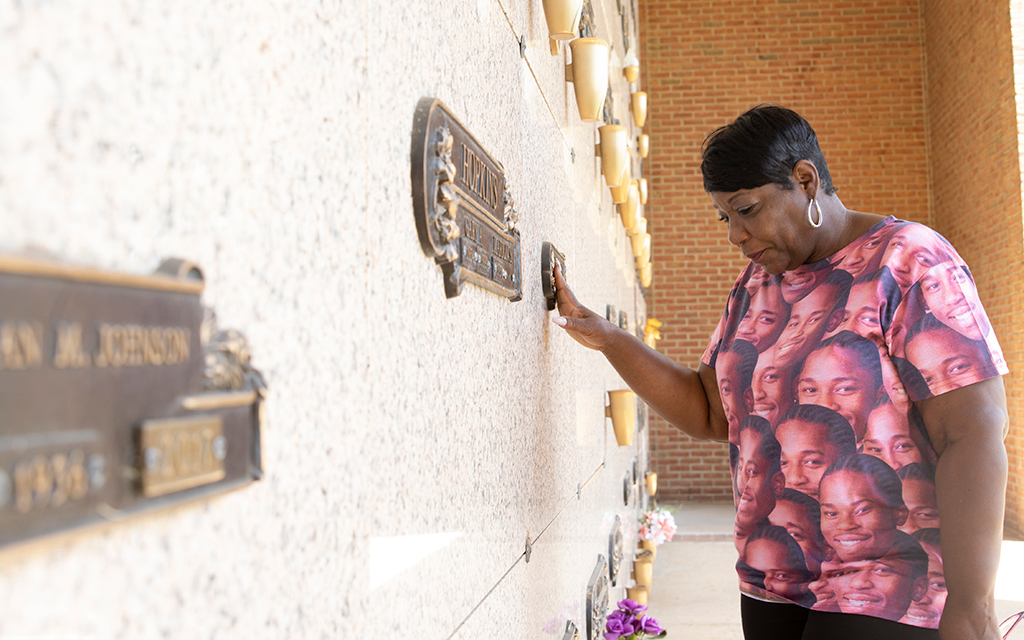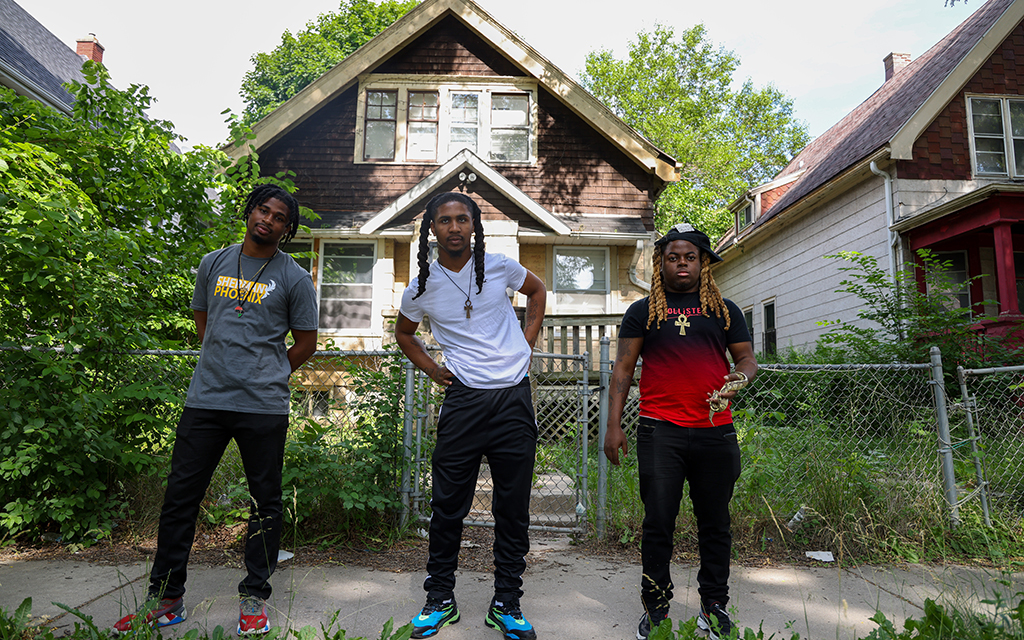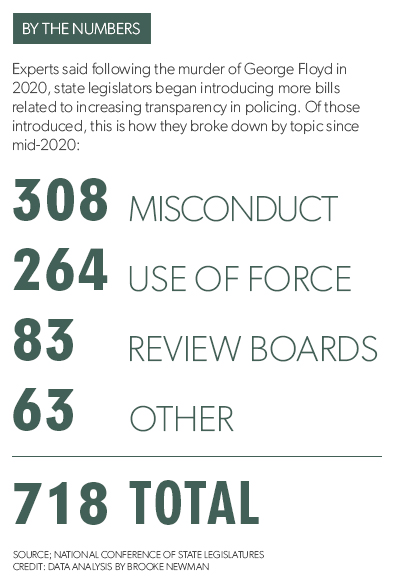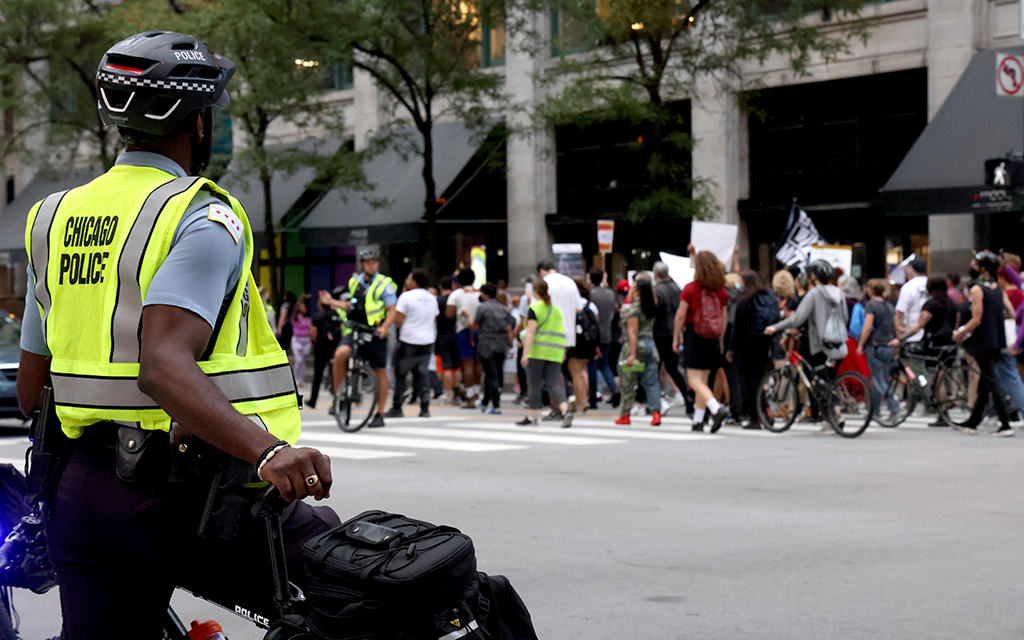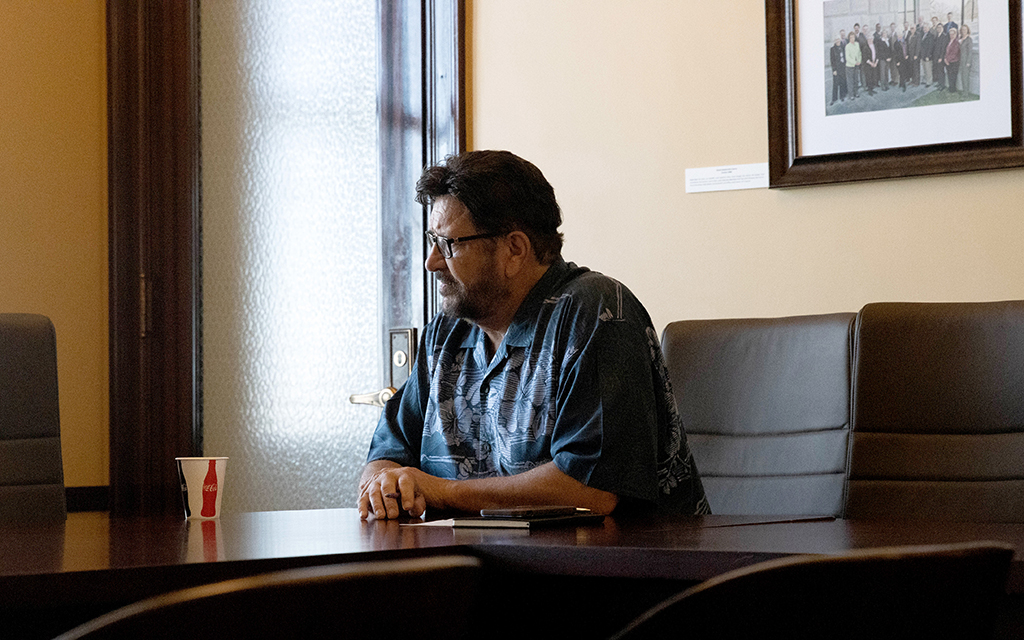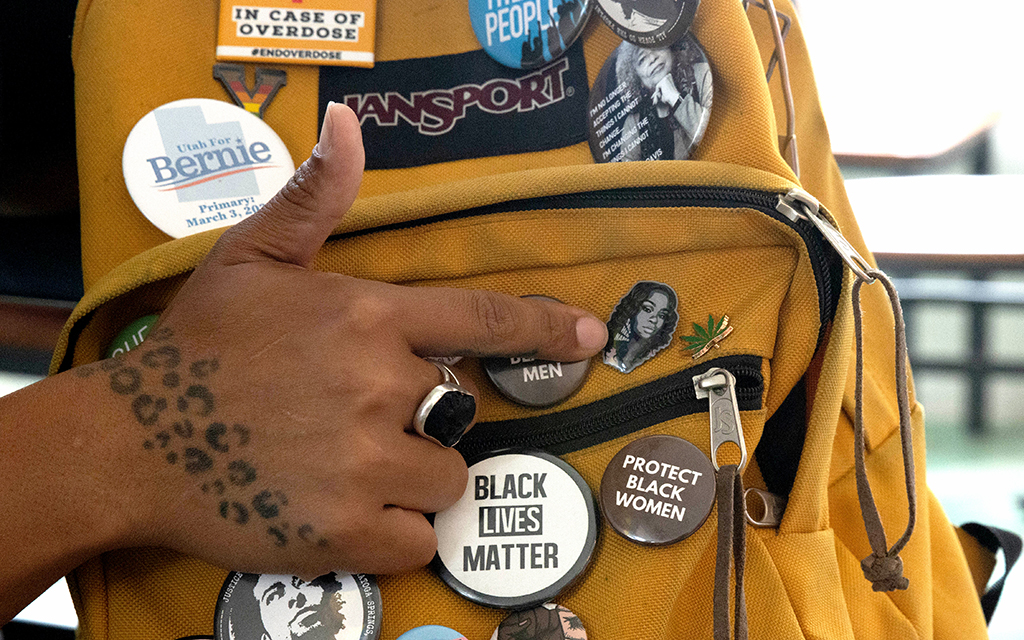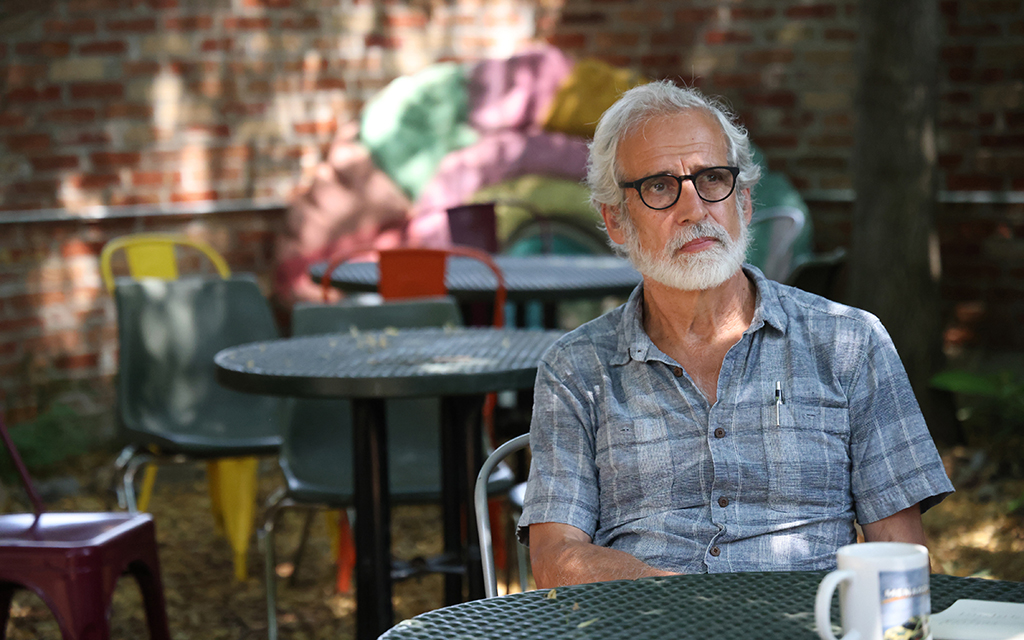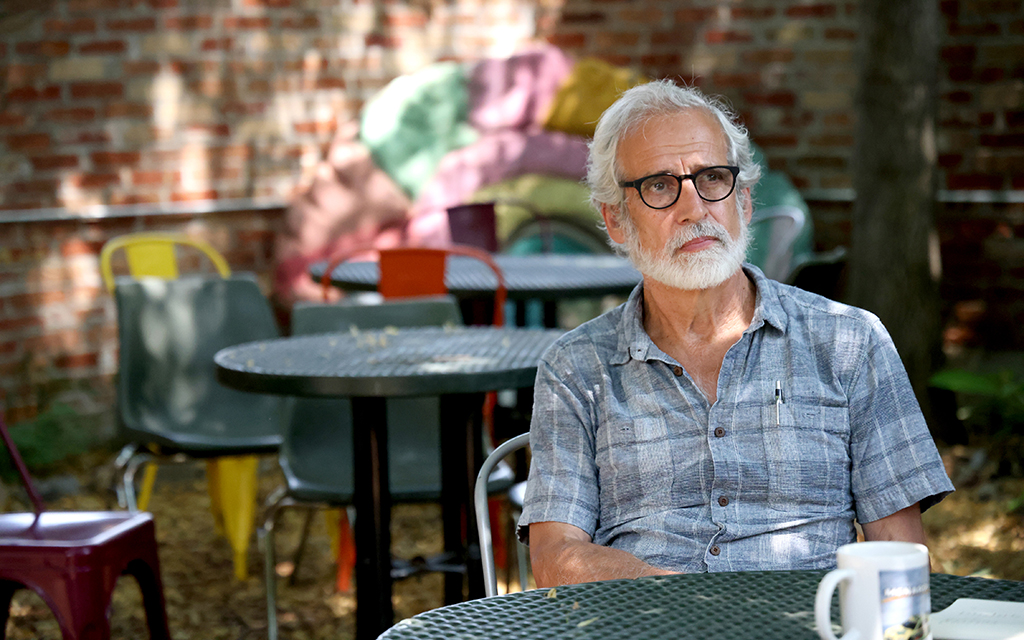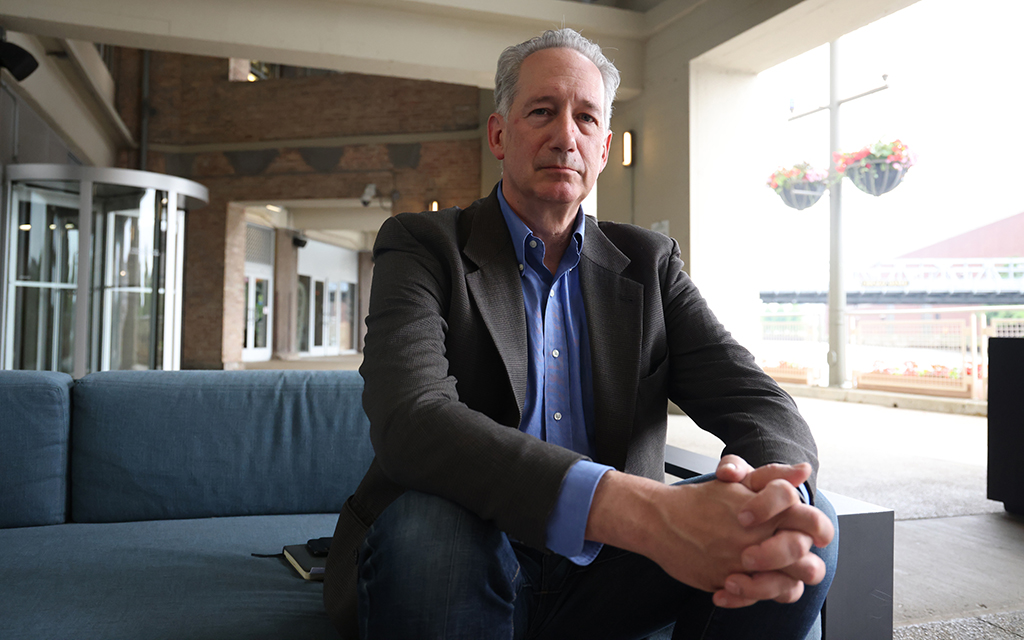How transparency occurs: Outside pressure
Jamie Kalven started observing and writing about police abuse while covering public housing as a journalist in Chicago.
“I began to see how brazenly a subset of police officers, by no means all police officers, but a subset of police officers, violated people’s rights,” Kalven said. “This was a setting where people were so abandoned by public and private institutions, in some ways assumed to be criminals.”
Kalven fought to obtain police misconduct data as a plaintiff in a case against the city. He won. Kalven v. Chicago established that in Illinois, police misconduct records are open to the public.
Kalven, who served as the former executive director of the Invisible Institute, used that ruling to respond to what he called the “historic opportunity presented by the release of information long hidden behind a wall of official secrecy” in a piece he wrote for The Intercept.
Kalven and others at the nonprofit created the Citizens Police Data Project, which curates police complaint histories. The data is from 1988 to 2018. The tool allows users to search the database for individual officers, officers with the most complaints and where allegations took place.
But the data did not come easily in the face of opposition from Chicago’s police union.
Kalven said transparency matters for a successful democracy and effective civil society institutions.
“Official secrecy is disempowering,” he said. “Transparency is also an antidote to various kinds of wrongdoing.”
The Invisible Institute is just one example of how activists and outside groups have stepped up to force more transparency and accessibility when city governments and law enforcement fail to provide information in an easy, discernable way.
FiveThirtyEight, a website that focuses on data to tell stories, reported that the most reliable data sets on police misconduct comes from journalists, activists and researchers.
For example, The Washington Post has its police shootings database. The Police Scorecard built a database so users can find information such as the percentage of misconduct complaints upheld and percentage of homicides solved for more than 13,000 law enforcement agencies. OpenPolice.org and other platforms assign departments a score and grade based on several measures, including how accessible the department makes complaints.
Some governmental groups also have worked to force transparency.
New York City’s Civilian Complaint Review Board grew out of public pressure 30 years ago after a violent altercation between New Yorkers and police, also known as the Tompkins Square Park riots. The board is the state’s largest oversight agency, tasked with investigating instances of misconduct in the New York City Police Department.
Yojaira Alvarez, senior adviser to the review board’s executive director, said the “public outcry” that led to the board’s creation remains the driving force for increased transparency measures.
The board operates New York’s largest officer misconduct database, with more than 200,000 complaints, including outcomes, penalties and officer names. Alvarez said public demands to repeal 50-A – one of the strongest officer bill of rights doctrines, which dominated policing in New York state for decades – gave the board more oversight powers.
Before the repeal of 50-A, the board could not publish identifying information about members of the NYPD, which weakened its ability to maintain and operate a misconduct database.
“In the beginning it was a joke – but they’re trying a little bit harder now,” said Arthur Mims of New York City, referring to the board. He attended the board’s public hearing on July 13.
Mims said overturning 50-A, despite union pressure, has helped in identifying officers who have a history of misconduct.
Other government leaders, such as inspector generals and attorneys general, have found ways to try to hold police more accountable through transparency.
In September, the New Jersey Attorney General’s Office launched a searchable dashboard of internal affairs investigations. It doesn’t include officer names, but it provides details about the number of complaints in each department and how they were resolved.
Joe Ferguson, the former inspector general of Chicago, said the city has a history of corruption. The Office of the Inspector General, an independent, nonpartisan oversight agency, created a public safety dashboard that tracks Chicago’s 911 calls, arrests, investigatory stops and more.
The Chicago Police Department, which did not respond to a request for comment, has always required an “extra layer of scrutiny,” Ferguson said.
For true transparency to work, all components of the criminal justice system must work together, he said.
“I’m not saying Chicago is the shining example,” he said. “But Chicago at this moment is a place where the messy work of trying to figure it out is being done from different directions all simultaneously.”

